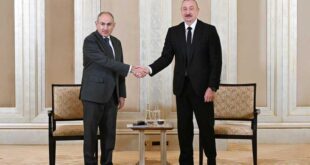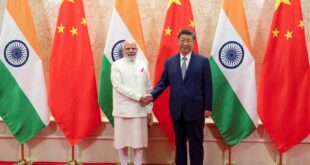Some key members of the 34-nation anti-IS coalition announced by Saudi Arabia have a fundamental question: just what is it?
Indonesia apparently did not know it was going to be a military alliance, which it does not want to join. A senior Pakistani lawmaker, meanwhile, only learned the news from the media.
Comments from several of the capitals that signed up to the initiative appeared to reveal a lack of preparation by Riyadh, which approached partners with an invitation to join a coordination centre – but then announced a military alliance.
When Saudi Arabia’s Deputy Crown Prince Mohammad bin Salman announced the new group at a sudden midnight news conference, he called it an “Islamic military coalition” – a description that appeared to surprise some of the governments involved.
Armanatha Nasir, Indonesia’s foreign ministry spokesman, said the Saudi foreign minister had approached Jakarta twice in the past few days to ask it to join a “centre to coordinate against extremism and terrorism”.
However, “what Saudi Arabia has announced is a military alliance… It is thus important for Indonesia to first have details before deciding to support it”, he said.
Jakarta has not yet decided whether or not to join the group.
Pakistani Senator Sehar Kamran, who is on the Senate defence committee and lived in Saudi Arabia for many years, said a phone call from Reuters was the first she had heard of the alliance.
“I haven’t seen the news yet,” she said. Asked if this had been debated in the Senate or National Assembly, she said: “No. Not yet.”
The country’s Foreign Secretary Aizaz Chaudhry was quoted in the daily newspaper Dawn as saying he had been surprised to read of Islamabad’s inclusion and was seeking details from Riyadh.
That confused approach to the project may undermine its goal, not only of creating an effective group to fight militancy, but of assuaging Western fears that Muslim countries are indifferent to the threat posed by the Islamic State group.
Anti-IS or anti-Iran?
One driving force of support for IS has been a rise in sectarian anger, much of it driven by the proxy wars emerging from a political struggle between Sunni Saudi Arabia and Shia Iran.
In that context, the absence from Riyadh’s coalition of Iran and its allies Iraq and Syria seems to suggest that Saudi officials may hope eventually to use its “Muslim coalition against terrorism” as a Sunni bloc that could isolate Tehran’s Arab Shia proxies.
Meanwhile, Riyadh is a fierce opponent of Lebanese Hizballah, and has on many occasions blacklisted members and institutions affiliated to the party.
Yet Jubeir, the Saudi foreign minister, dismissed there being any sectarian element to the Islamic coalition’s formation.
“This is not a Sunni coalition or a Shia coalition,” said Jubeir. “It is an anti-terrorism coalition and anti-extremism coalition.”
Lebanon and Iraq react
In Lebanon, Prime Minister Tammam Salam said that Saudi Arabia assured him the Islamic anti-terrorism coalition revealed on Tuesday was designed to target IS and like-minded extremists, not Hizballah.
As Lebanon has been engaged in a war with IS and Nusra Front militants along its north-eastern border with Syria for more than a year, Salam said Lebanon would join the Islamic anti-terror coalition.
Saudi Arabia’s decision to add Lebanon to the coalition on Tuesday has been met with criticism from some Lebanese officials, however.
Labour Minister Sejaan Azzi said Lebanon could not join an Islamic alliance, as it is not an Islamic country, while the Foreign Ministry said it had no prior knowledge of such an alliance.
In Baghdad, meanwhile, Iraqi lawmaker Hakim al-Zamili dismissed the new alliance as sectarian.
Zameli told a Lebanese TV station that Saudi Arabia, which he accused of supporting the al-Qaeda-affiliated Nusra Front, “was not serious” about fighting terrorism.
 Geostrategic Media Political Commentary, Analysis, Security, Defense
Geostrategic Media Political Commentary, Analysis, Security, Defense





